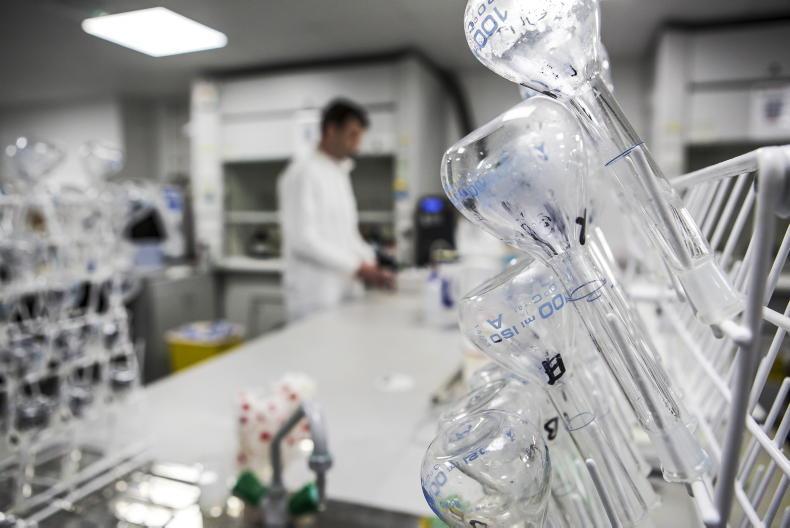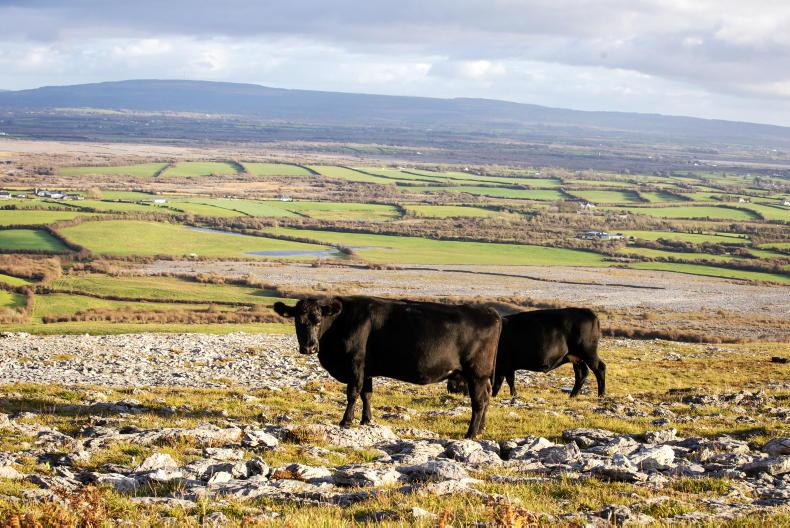The European Commission’s Farm to Fork strategy, which will impose cuts on fertilisers, pesticides and antimicrobial use, has been delayed due to coronavirus.
The Farm to Fork strategy was due to be published on March 25, but has been pushed back to 29 April.
The latest draft of the plan, seen by the Irish Farmers Journal, says that farmers will have to reduce input use by 2030 to achieve sustainable food production. However, the draft does not state by what percentage each must be reduced. These targets are likely to be included when the strategy is published next month.
It says the use of chemical pesticides is responsible for the pollution of soil, water and air and can negatively affect non-target species. To reduce pesticide use, the Sustainable Use of Pesticides Directive will be revised and this will be under the remit of the European Commission’ health department, DG Sante, not DG Agriculture.
Changes
Excessive use of nutrients is identified as a major source of water pollution and biodiversity loss in the draft Farm to Fork strategy.
To achieve a reduction in nutrient use, the Commission wants full implementation and enforcement of environmental and climate legislation and promotion of precision fertilisation.
It also wants to increase the area of land farmed organically but this latest draft of the strategy has left the specific target blank.
The Farm to Fork strategy will include changes for the wider agri-food sector
The Commission also wants to revise animal welfare legislation, including on animal transport, to make it easier to enforce.
To achieve the targets, once they are set, the Commission has identified eco-schemes, which will replace Greening in the next CAP, as one of the main tools to incentivise farmers.
The Farm to Fork strategy will include changes for the wider agri-food sector.
Among the draft proposals are calls for mandatory front-of-pack nutrition labelling and requirements to indicate the origin of milk and meat, which would affect Ireland as a prolific exporter of food.
Read more
Empty shelves reveal value of food
Plant proteins could be a big focus in Farm to Fork strategy
The European Commission’s Farm to Fork strategy, which will impose cuts on fertilisers, pesticides and antimicrobial use, has been delayed due to coronavirus.
The Farm to Fork strategy was due to be published on March 25, but has been pushed back to 29 April.
The latest draft of the plan, seen by the Irish Farmers Journal, says that farmers will have to reduce input use by 2030 to achieve sustainable food production. However, the draft does not state by what percentage each must be reduced. These targets are likely to be included when the strategy is published next month.
It says the use of chemical pesticides is responsible for the pollution of soil, water and air and can negatively affect non-target species. To reduce pesticide use, the Sustainable Use of Pesticides Directive will be revised and this will be under the remit of the European Commission’ health department, DG Sante, not DG Agriculture.
Changes
Excessive use of nutrients is identified as a major source of water pollution and biodiversity loss in the draft Farm to Fork strategy.
To achieve a reduction in nutrient use, the Commission wants full implementation and enforcement of environmental and climate legislation and promotion of precision fertilisation.
It also wants to increase the area of land farmed organically but this latest draft of the strategy has left the specific target blank.
The Farm to Fork strategy will include changes for the wider agri-food sector
The Commission also wants to revise animal welfare legislation, including on animal transport, to make it easier to enforce.
To achieve the targets, once they are set, the Commission has identified eco-schemes, which will replace Greening in the next CAP, as one of the main tools to incentivise farmers.
The Farm to Fork strategy will include changes for the wider agri-food sector.
Among the draft proposals are calls for mandatory front-of-pack nutrition labelling and requirements to indicate the origin of milk and meat, which would affect Ireland as a prolific exporter of food.
Read more
Empty shelves reveal value of food
Plant proteins could be a big focus in Farm to Fork strategy








SHARING OPTIONS